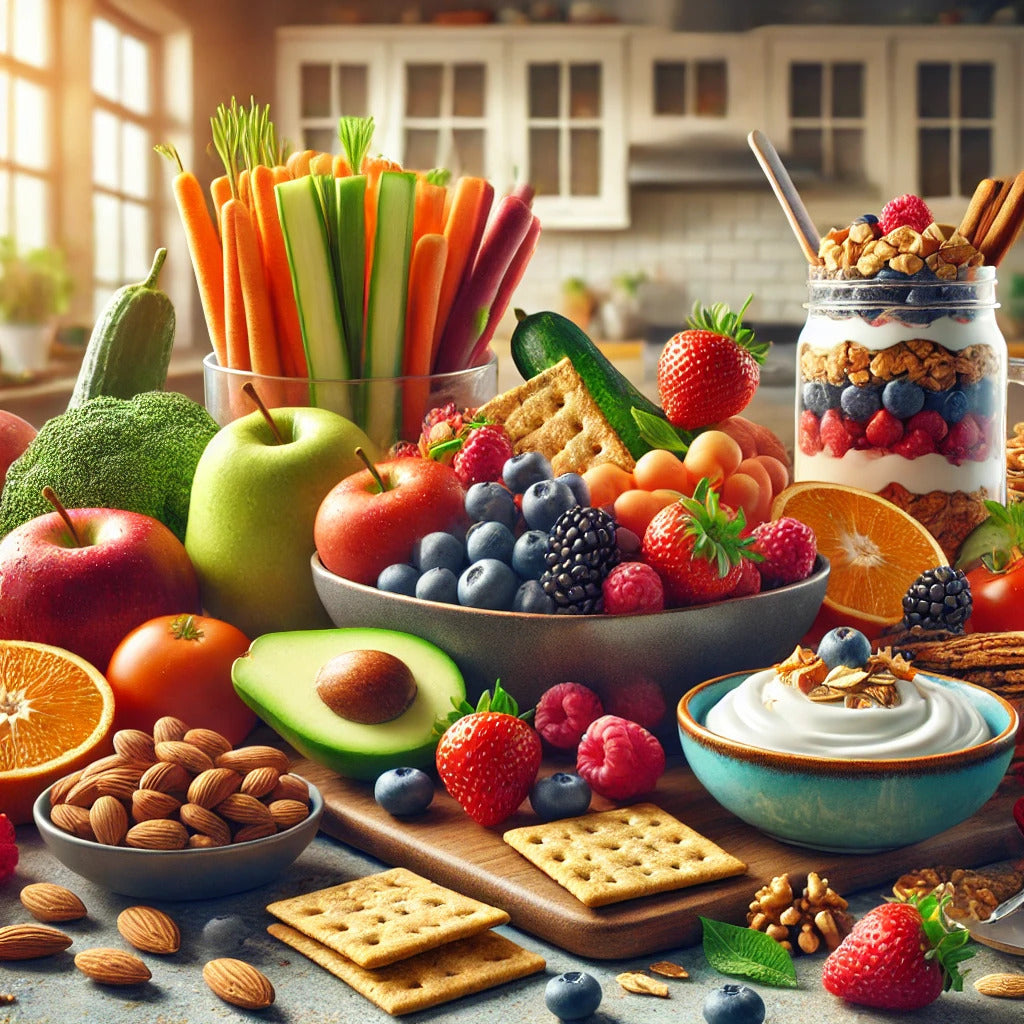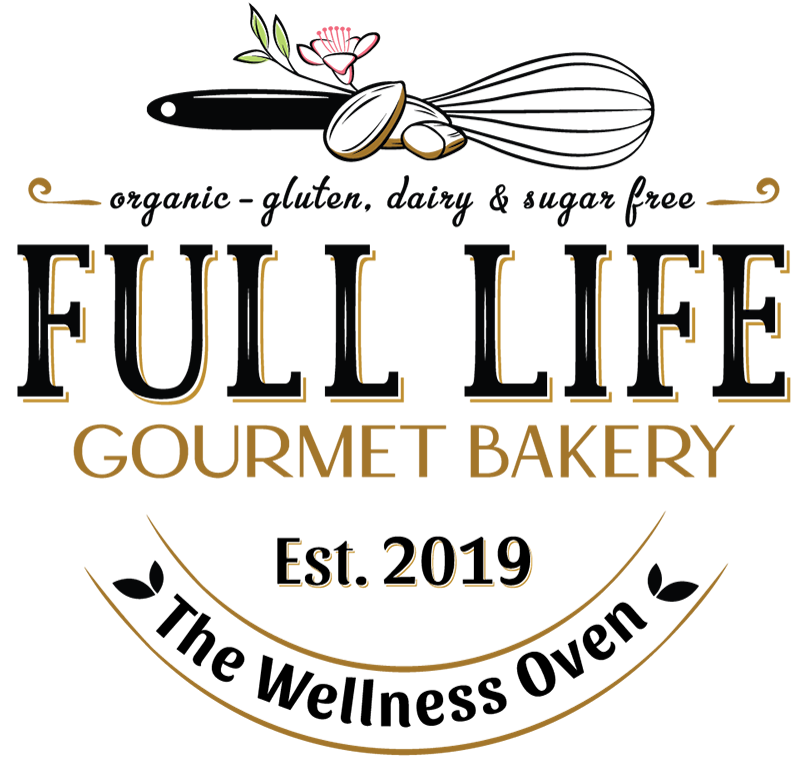
The importance of nutritional and healthy snacks is paramount in today’s fast-paced world where convenience often supersedes quality in terms of food choices. Healthy snacking plays a crucial role in maintaining a well-balanced diet and can have a profound impact on an individual’s overall health and well-being.
Nutritional snacking and its significance:
1. Energy Boost and Mental Alertness:
Consuming snacks rich in complex carbohydrates, proteins, and healthy fats ensures that energy is released gradually throughout the day. This helps in maintaining stable blood sugar levels, which is crucial for concentration and cognitive function. According to a study published in the British Journal of Health Psychology, there is a strong association between the consumption of fruits and vegetables and greater vitality and mental well-being. Such snacks can be particularly beneficial for people with high energy demands such as athletes, students, and professionals.
2. Weight Management:
Strategic snacking can aid in weight management by curbing excessive hunger, which may lead to overeating during main meals. Opting for nutrient-dense snacks like nuts, seeds, and fruits can keep one satiated for longer. Conversely, snacks high in sugars and unhealthy fats contribute to weight gain. A study published in the Journal of the Academy of Nutrition and Dietetics showed that individuals who snacked on high-protein and high-fiber foods were more likely to have a healthy body mass index (BMI).
3. Chronic Disease Prevention:
The choice of snacks can have a significant impact on the risk of developing chronic diseases such as heart disease, diabetes, and cancer. For instance, snacks that are high in saturated fats and sugars can increase the risk of cardiovascular diseases. The American Heart Association recommends opting for snacks that are high in fiber and low in saturated fats, such as nuts, seeds, and whole grains, to reduce heart disease risk. Likewise, snacks rich in antioxidants, like berries and dark chocolate, can have protective effects against certain types of cancers.
4. Bone Health and Growth in Children:
Snacks are vital for children’s nutrition, as they contribute significantly to their daily intake of nutrients. It’s crucial that the snacks provided to children are rich in essential minerals like calcium and phosphorus, which are critical for bone health. Dairy products such as cheese and yogurt, as well as fortified plant-based milks, are excellent sources of these minerals. The inclusion of vitamin D-rich foods like fatty fish is also important, as this vitamin is crucial for calcium absorption.
5. Digestive Health:
Snacks that are high in dietary fiber, such as whole grains, legumes, nuts, and seeds, can promote digestive health by preventing constipation and promoting a healthy balance of gut flora. Fiber adds bulk to the stool, making it easier to pass, and also serves as food for beneficial bacteria in the gut. A systematic review published in the World Journal of Gastroenterology highlighted the role of dietary fiber in maintaining gut health and reducing the risk of gastrointestinal diseases.
Below are 10 easy nutritional snacks that one can prepare at home:
1. Hummus and Vegetables: Combine chickpeas, tahini, lemon juice, and olive oil in a blender to make hummus. Serve it with sliced bell peppers, cucumbers, or carrots for a crunchy and nutritious snack.
2. Greek Yogurt and Berries: Mix a cup of Greek yogurt with a handful of berries (e.g., strawberries, blueberries) for a protein-rich snack that is also high in antioxidants.
3. Almond Butter Banana Sandwiches: Slice a banana into rounds and spread almond butter between two slices, making mini sandwiches. Almond butter is rich in monounsaturated fats, while bananas provide a good source of potassium.
4. Overnight Oats: Combine rolled oats with milk or a dairy-free alternative and leave in the refrigerator overnight. Add nuts, seeds, and fruits in the morning for a hearty, fiber-rich snack.
5. Boiled Eggs and Whole Wheat Toast: Boil eggs to your liking (soft or hard) and serve them with whole wheat toast. This snack offers a good balance of protein and complex carbohydrates.
6. Trail Mix: Create your trail mix by combining nuts (e.g., almonds, walnuts), seeds (e.g., pumpkin, sunflower), and dried fruits (e.g., raisins, apricots). This is a high-energy snack that also provides healthy fats and antioxidants.
7. Caprese Skewers: Skewer cherry tomatoes, mozzarella balls, and basil leaves. Drizzle with a little olive oil and balsamic vinegar. This snack is rich in calcium and the antioxidant lycopene.
8. Rice Cakes with Avocado: Spread mashed avocado on whole-grain rice cakes. Sprinkle with a pinch of salt and pepper. This is a crunchy snack that provides healthy fats and fiber.
9. Smoothie: Blend frozen fruits like berries or mango with Greek yogurt or a milk alternative. Add a handful of spinach for an extra nutrient boost.
10. Roasted Chickpeas: Toss chickpeas in olive oil, paprika, and a pinch of salt, then roast them in the oven until crispy. This snack is high in protein and fiber.
In conclusion, snacking can have a profound impact on one's health. By choosing nutritious snacks, individuals can not only boost their energy and mental alertness but also manage their weight, prevent chronic diseases, and promote bone and digestive health. It’s vital to opt for snacks that offer a balance of macronutrients, vitamins, and minerals, such as the examples provided. Healthful snacking is an integral component of a balanced lifestyle and should be approached thoughtfully and intentionally.
By Guillermo Brillembourg




